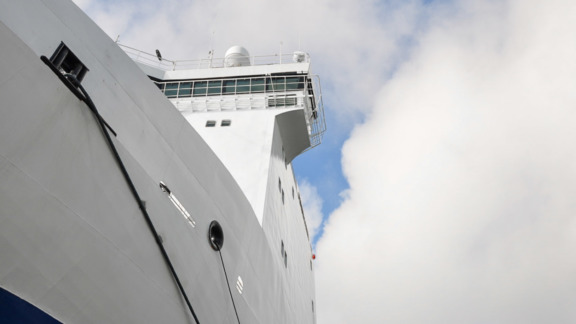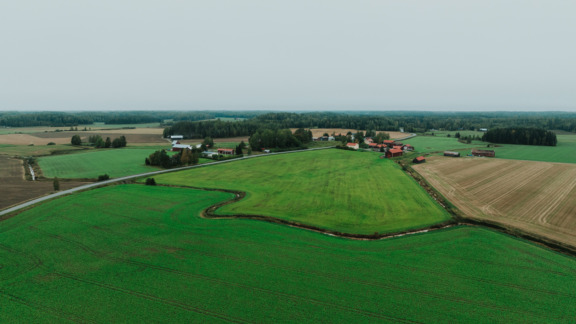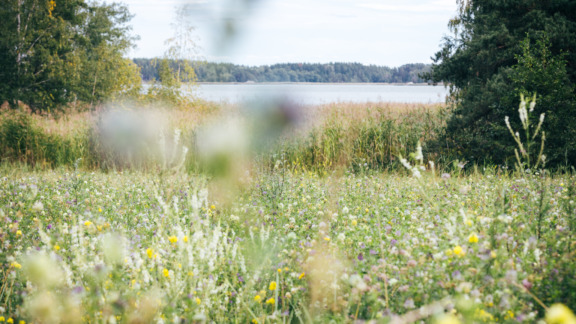BLOG: Finnish Government Programme takes the environmental crises seriously
Carbon farming gets a lot of attention in the new programme
The Government Programme recognizes that climate change, declining biodiversity and the overconsumption of natural resources are among the most critical issues facing humanity. The Programme makes ambitious aims at tackling climate, biodiversity and the Baltic Sea issues. BSAG’s action are well in line and support the goals of the new Programme.
The Government will work to ensure that Finland is carbon neutral by 2035 and carbon negative soon after that. This will be done by accelerating measures to reduce emissions, and by strengthening carbon sinks. Another ambitious goal is to halt the decline of biodiversity in Finland. Circular economy will be highly promoted.
It is great that the protection of the Baltic Sea also has its own section in the Programme. The intensified Baltic Sea and water protection programme will be continued and the use of gypsum, structural lime and nutrient fibre in fields will be broadened. Oil and chemical spill response capabilities will be improved. For Finland, the aim of regional cooperation concerning the Baltic Sea is that the Baltic Sea should be clean and constitute a robust marine environment that is used sustainably.
The Programme recognizes that agriculture has much potential in terms of finding solutions to environmental challenges. Measures such as carbon farming, already piloted in the BSAG initiated Carbon Action project, gain strong support. For example, it is stated that good soil productivity, water economy and carbon sequestration capacity improve cultivation properties, crop security and adaptation of agriculture to changing natural conditions. In addition, strengthening of biodiversity, reducing the impact of agriculture on waters, enhancing of biogas production and nutrient recycling and the awareness of consumers are promoted.
In addition, the Government commits to deepen the cooperation with the scientific community and enhance cross-sectoral approach as well as new kind of interaction. More resources are allocated to environmental administration, environmental research and Finnish Climate Panel and conditions required for Nature Panel’s operations are ensured. The international competitiveness and attractiveness of the Finnish research and science community will be reinforced by investing in research environments and infrastructure.
The new Programme is ambitious and gives lots of promises. The Government Programme is an enabler. Together we have to make sure that these great promises come true. The Programme is also well in line with BSAG’s objectives.
1) Promoting the sequestration of carbon to agricultural soils
The promoting and scaling of Carbon Action gains very strong support from the Government Programme. Measures introduced in Carbon Action offer many benefits. Carbon farming enhances soil health as it restores the carbon content, which, in turn, improves productivity. It also increases biodiversity and ecosystem resilience and provides water infiltration and nutrient retention. The Programme has many detailed references:
- Comprehensive climate programme for the land use sector will be created, the measures include reducing the emissions and strengthening the carbon sequestration properties of agricultural land.
- Focus on researching carbon sinks, measuring carbon sequestration and developing calculation models will be continued.
- Pilots for carbon sequestration and storage markets in Finland will be implemented, albeit not as a replacement for emissions reductions.
- Finland will advance the international 4/1000 initiative to increase carbon sequestration in agriculture. Research on new farming methods and advance the adoption of these will be developed.
- Climate emissions from agriculture will be reduced and carbon sinks increased while also developing the conditions for agricultural activities
- The need to clear peatlands will be reduced by increasing the processing and productisation of manure.
- Measures under the future environmental payment system will be carried out in a way that reduces emissions from agriculture.
- Market-driven mechanisms will be developed to compensate farmers for soil carbon sequestration based on results.
- The introduction of cultivation techniques which either increase carbon sequestration or reduce climate emissions will be promoted.
- Sufficient funding will be ensured for climate and environmental objectives in the EU’s financial framework negotiations and nationally (CAP, ERDF, LIFE).
- A strong focus will be placed on research, education and training, and advice. The main focus will be on carbon sequestration, low-carbon operations and competitiveness.
2) Enhancing nutrient cycling
BSAG has strongly promoted nutrient recycling for many years. The efficient recycling of nutrients decreases the use of commercial fertilizes and reduces the nutrient load on the Baltic Sea. This work gains support too:
- Circular economy advancement programme will be adopted. The work to strengthen the circular economy will also take into account nutrient recycling.
- Set of measures focusing on nutrient recycling will be implemented, which will increase the production and consumption of biogas and create a market for recycled fertilizers, thereby significantly reducing the need to clear new fields for manure application and decreasing the nutrient load on waterways.
- National biogas programme will be prepared to tap into the biogas production potential.
- Biogas investments and new manure processing techniques will be supported.
3) Securing biodiversity of the marine environment
BSAG safeguards biodiversity of the marine environment by for example promoting the preserving of underwater marine environment jointly with the VELMU programme. The marine environment is vaguely mentioned in the Programme, but there would have been a need for a much stronger statement. The most valuable sites should be preserved in order to safeguard underwater biodiversity and carbon sinks. In addition, Finland should ensure moratorium for cod in the southern part of the Baltic Sea. It is not only the matter of protecting a single fish species, but safeguarding biodiversity and ecosystems.
Climate change, biodiversity and the state of the Baltic Sea are intertwined, which makes solving environmental issues especially difficult. BSAG takes this interconnectedness into account by aiming to solve problems at a systemic level.
Laura Höijer
Content director, Baltic Sea Action Group



